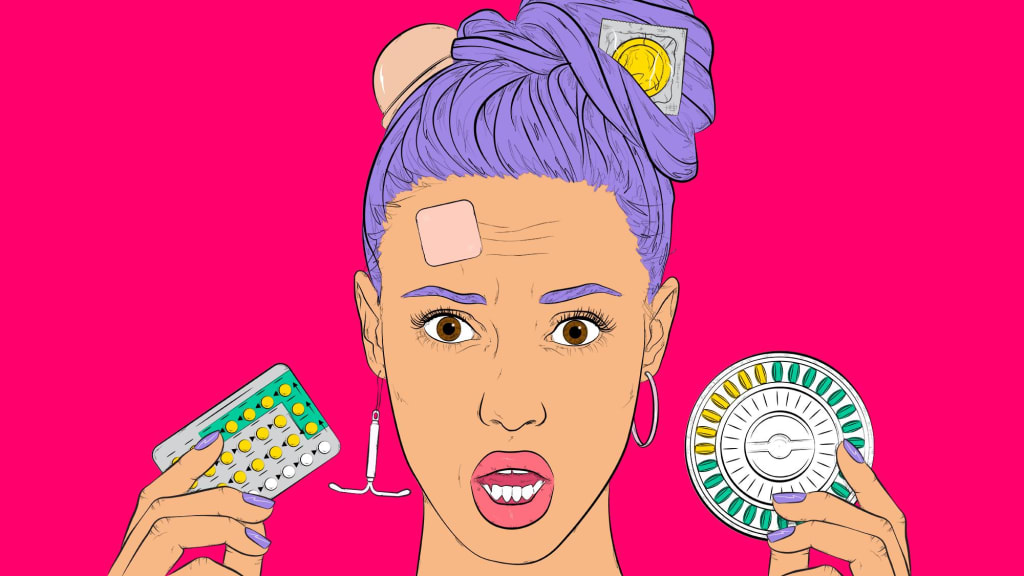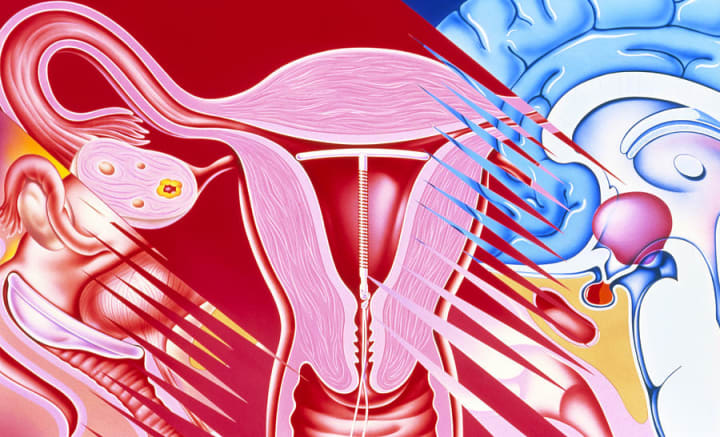
Get this: A whopping 3 percent of Americans wait until marriage to have sex, according to statisticbrain. There's a few interesting reasons behind that, specifically, sex is fun. It's easy to get lost in a emotion and hormone-filled moment and just...do it. No matter what race, ethnicity, age, gender, or even religion (seeing as there's only a 17 percent increase in abstinent people who are highly religious) people are likely to end up getting it on before they engage in marriage with their SO. You 3-20 percent out there that are saving yourself for your one and only, all the power to you, you've got an impressive ability to control your emotions and urges, and I'm glad that works for you.
Here are some statistics about abstinence (from statisticbrain):
- Percent of Americans who wait until marriage to have sex: 3
- Percent of Americans who waited until marriage to have sex in 1950: 11
- Percent of Americans in highly religious groups who wait until marriage to have sex: 20
- Percent of abstainers who are women: 60 (you go girls)
- Percent of high school students who are virgins: 54
- Percent of teens who agree that sexual activity for high school-age teens is not acceptable: 58%
- Percent of teens who desire to have one partner for life: 82
- Percent of girls who have had sexual intercourse but said they wish they had waited: 80%
- Percent of teens who don’t think its embarrassing to admit being a virgin: 87%
- Teen abortion per 100,000 girls (< 20 years old) in states rejecting abstinence funding: 65.5
- Teen abortion per 100,000 girls (< 20 years old) in states accepting abstinence funding: 44.2
Now, for the rest of us. For many reasons other than pregnancy, birth control is a hugely successful combatant of sexual-related (and even some non-sexual) possible issues. It can help control pesky symptoms of imbalanced hormones like irregular periods, skin problems and mood issues, as well as to prevent pregnancy and STIs.
Simple Birth Control Options

Photo Credit: Pulse.ng
If you like to keep it simple, the ol' tried and true pull-out-method is great and all, except for the fact that Planned Parenthood reports that 4% of women who practice the pull-out-method perfectly will still get pregnant. As if pulling out in a moment like that perfectly is an easy feat, there's still a chance you could get pregnant. In rides your knight in polyurethane armor (get it), the condom. These prove to be 98% effective when used properly, but I gotta be honest, I just don't like the feel. You know what I mean? If you happen to be unlike me and the slippery rubbery feel doesn't bother you, you're also arming up against STIs with that added layer of protection, so give yourself a health point.
In the case that you participate in some hanky panky while litty asf, really tired, lazy or otherwise, you need to have a backup plan. The adequately-named Plan B or Morning-After Pill is able to be taken by mouth and can be effective for up to five days after unprotected sex, but is most effective the sooner it's taken (according to birthcontrol). It temporarily stops the process of the ovaries releasing an egg to the sperm which can stay in your body alive for up to six days (gross) preventing fertilization. This is known as emergency contraception and it comes in another form that is only available by prescription (Ella) or through the Paragard IUD. These methods are not the same as an abortion pill and will not terminate an existing pregnancy, they will only prevent one from getting pregnant in the first place.
Advanced Birth Control Options

Photo Credit: Fine Art America
So let's say you're not about the risky pull-out-method, condoms freak you out and you don't want to have to take the Morning-After Pill every morning (am I right?), you gotta head on down to your primary care physician or the local health department to explore your options. While researching online is a good idea to get a feel for what you're planning to do, the best thing is to talk to a knowledgeable professional about what's best for you based on your personal needs. It might be a super awkward convo for you, but worst case scenario you walk out of there and never go back, best case scenario you get yourself set up on a birth control that protects you and is best suited for you.
Once you get there it's like going to any other doctor's office, and then you'll talk to the health professional about all the different, scary ways to prevent birth. The one that sounds the easiest is a simple birth control pill, which is 99.9 percent effective according to webmd. The hormones in these pills can be a blessing or a curse when it comes to how your body reacts. It might totally balance you out, or it can throw you all out of whack. When I was on the pill it caused high blood pressure, acne and really bad mood swings, so that obviously wasn't for me. So, I moved on to the DEPO, a shot given every three months, and the risk for pregnancy is less than one percent in women who use it. Hurts a little bit more than taking a pill, but you don't have to worry about forgetting to take it every day, you only have to remember an appointment every 90 days. While I was pretty happy with the DEPO, I traded it in for a more reliable solution after getting it a couple months. It did tend to cause soreness and tiredness a couple of days after taking it, but other than that it worked really well. There is also a small implant that goes in your arm and gradually releases hormones called the Implanon and Nexplanon.
What I'm using now is an IUD, specifically the non-hormonal one which is called the Paragard IUD (intrauterine device). There are other options with hormones called the Mirena, Skyla and Liletta, which utilize Progestin. There's also a vaginal ring implant called the NuvaRing. I opted for the non-hormonal IUD because prior uses of hormones affected me negatively, and I was on other medication at the time that it could interfere with. Though I wasn't psyched about having a professional between my legs any more than I needed to, or the horror stories about the pain, the 99.9 percent effectiveness and 10 year expiration date with no hormones looked really good to me.
The procedure went really well, it was very uncomfortable, in fact my doctor told me most women screamed at some point, so I got a little pat on the back for my pain tolerance. You have to check it after each period to make sure it's still in place, and that's pretty much it. I had a fitsy period for about a month after, where it would get heavy and then light, but then it evened out and I now have a normal, relatively light period.
Remember it never hurts to do your homework and ask questions, you deserve to know what your options are and to know what's best for you. If you're a minor, make sure to talk to your parents or legal guardians and your healthcare professionals so you're sure you're making a healthy decision for yourself.
Find out more about birth control and healthy choices for your sex life at the following sites:
About the Creator
Vans Life
Just your average (not at all) college student trying to get it right. Feel free to send suggestions, comments or questions directly to me at: [email protected]






Comments
There are no comments for this story
Be the first to respond and start the conversation.